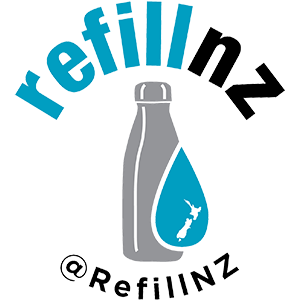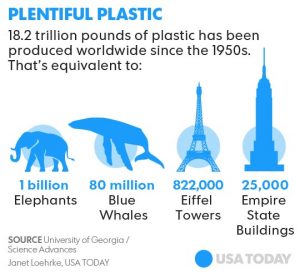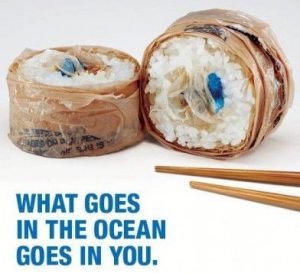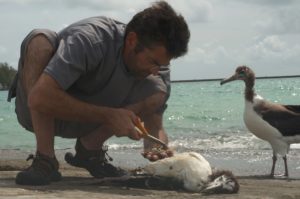There are truckloads of it in our oceans and rivers
Plastic pollution is one of the biggest environmental challenges of our time.
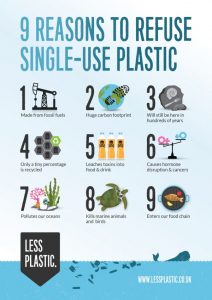 Plastic constitutes approximately 90 percent of all rubbish floating on the ocean’s surface. Oceana, report (Nov 20) lists plastic pollution as the #1 killer of marine wildlife.*
Plastic constitutes approximately 90 percent of all rubbish floating on the ocean’s surface. Oceana, report (Nov 20) lists plastic pollution as the #1 killer of marine wildlife.*
By 2050 plastic waste is estimated to outweigh all the fish in the sea and it’s getting in the seafood you eat.
An estimated truckload of plastic enters the ocean every minute.
It will be with us for centuries – it takes hundreds of years for plastic to breakdown.
Contributes to carbon emissions
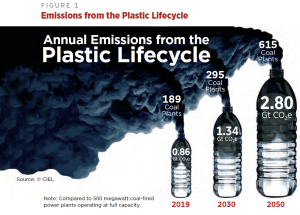 Single-use plastics are made almost exclusively from fossil fuels, driving the climate crisis.
Single-use plastics are made almost exclusively from fossil fuels, driving the climate crisis.
Imagine a one litre water bottle filled one quarter of the way up with oil. That’s about how much oil was needed to produce the bottle, plus three bottles of water.
By 2050 plastic is expected to account for 15% of greenhouse gas emissions.
With the oil companies recognising the growth of EV they are ramping up the production of plastic
Just 20 companies produce 55% of single use plastic, those responsible are both state-owned and multinational corporations, including oil and gas giants.
Showing how fossil fuel companies were rushing to switch to plastic production as two of their main markets – transport and electricity generation – were being decarbonised.
More detail
The world’s largest rubbish patch is in our ocean
In our South Pacific sits a plastic garbage patch the size of India full of clouds of small plastics – the sort fish eat.
Henderson Island in this South Pacific region, was recently crowned the most plastic-polluted island on earth, as it is covered in roughly 38 million pieces of trash.
It’s here to stay
Plastic doesn’t go away, it’s stays in our environment for centuries. Virtually every piece of plastic that was ever made still exists. It doesn’t break down – it only breaks up, becoming smaller and smaller until it eventually becomes microplastic.
Gets in our food
Microplastic is now in most of our drinking water and fish, with untold future effects for humans. A recent study on fish in the south Pacific showed that 97 percent of all fish species sampled had microplastics in them. Eating fish that have consumed microplastic is unlikely to come without health consequences.
Plastic kills wildlife
From getting stuck in nets to eating plastic that they think is food, wildlife worldwide are dying from the material we made. One million sea birds and 100,000 marine mammals are killed annually from plastic in our oceans, whether by choking, entangling, or slowly poisoning them, or starving them of real food.
* Oceana, released a new report in Nov 20202 that lists plastic pollution as the #1 killer of marine wildlife. Since 2009, there is evidence of nearly 1800 marine animals across 40 different species having swallowed or becoming entangled in plastic. Of those animals, 88% of them were from species that are listed under the Endangered Species act as endangered or threatened.
